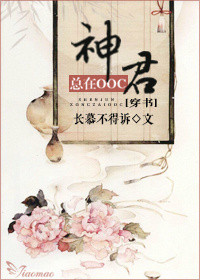phocion-第7部分
按键盘上方向键 ← 或 → 可快速上下翻页,按键盘上的 Enter 键可回到本书目录页,按键盘上方向键 ↑ 可回到本页顶部!
————未阅读完?加入书签已便下次继续阅读!
In the meantime Polysperchon; who was intrusted with the charge of
the king; to countermine Cassander; sent a letter to the city;
declaring; in the name of the king; that he restored them their
democracy; and that the whole Athenian people were at liberty to
conduct their commonwealth according to their ancient customs and
constitutions。 The object of these pretences was merely the
overthrow of Phocion's influence; as the event manifested。 For
Polysperchon's design being to possess himself of the city; he
despaired altogether of bringing it to pass whilst Phocion retained
his credit; and the most certain way to ruin him would be again to
fill the city with a crowd of disfranchised citizens; and let loose
the tongues of the demagogues and common accusers。
With this prospect the Athenians were all in excitement; and
Nicanor; wishing to confer with them on the subject; at a meeting of
the Council in Piraeus; came himself; trusting for the safety of his
person to Phocion。 And when Dercyllus; who commanded the guard
there; made an attempt to seize him; upon notice of it beforehand;
he made his escape; and there was little doubt he would now lose no
time in righting himself upon the city for the affront; and when
Phocion was found fault with for letting him get off and not
securing him; he defended himself by saying that he had no mistrust of
Nicanor; nor the least reason to expect any mischief from him; but
should it prove otherwise; for his part he would have them all know;
he would rather receive than do the wrong。 And so far as he spoke
for himself alone; the answer was honourable and high…minded enough;
but he who hazards his country's safety; and that; too; when he is her
magistrate and chief commander; can scarcely be acquitted; I fear;
of transgressing a higher and more sacred obligation of justice; which
he owed to his fellow…citizens。 For it will not even do to say that he
dreaded the involving the city in war; by seizing Nicanor; and hoped
by professions of confidence and just…dealing to retain him in the
observance of the like; but it was; indeed; his credulity and
confidence in him; and an overweening opinion of his sincerity; that
imposed upon him。 So that notwithstanding the sundry intimations he
had of his making; preparations to attack Piraeus; sending soldiers
over into Salamis; and tampering with and endeavouring to corrupt
various residents in Piraeus; he would; notwithstanding all this
evidence; never be persuaded to believe it。 And even when Philomedes
of Lampra had got a decree passed; that all the Athenians should stand
to their arms; and be ready to follow Phocion their general; he yet
sat still and did nothing; until Nicanor actually led his troops out
from Munychia; and drew trenches about Piraeus; upon which; when
Phocion at last would have let out the Athenians; they cried out
against him; and slighted his orders。
Alexander; the son of Polysperchon; was at hand with a
considerable force; and professed to come to give them succour against
Nicanor; but intended nothing less; if possible; than to surprise
the city; whilst they were in tumult and divided among themselves。 For
all that had previously been expelled from the city; now coming back
with him; made their way into it; and were joined by a mixed multitude
of foreigners and disfranchised persons; and of these a motley and
irregular public assembly came together; in which they presently
divested Phocion of all power; and chose other generals; and if by
chance Alexander had not been spied from the walls; alone in close
conference with Nicanor; and had not this; which was often repeated;
given the Athenians cause of suspicion; the city had not escaped the
snare。 The orator Agnonides; however; at once fell foul upon
Phocion; and impeached him of treason; Callimedon and Charicles;
fearing the worst; consulted their own security by flying from the
city。 Phocion; with a few of his friends that stayed with him went
over to Polysperchon; and out of respect for him; Solon of Plataea;
and Dinarchus of Corinth; who were reputed friends and confidants of
Polysperchon; accompanied him。 But on account of Dinarchus falling
ill; they remained several days in Elatea; during which time; upon the
persuasion of Agnonides and on the motion of Archestratus; a decree
passed that the people should send delegates thither to accuse
Phocion。 So both parties reached Polysperchon at the same time; who
was going through the country with the king; and was then at a small
village of Phocis; Pharygae; under the mountain now called Galate; but
then Acrurium。
There Polysperchon; having set up the golden canopy; and seated
the king and his company under it; ordered Dinarchus at once to be
taken; and tortured; and put to death; and that done; gave audience to
the Athenians; who filled the place with noise and tumult; accusing
and recriminating on one another; till at last Agnonides came forward;
and requested they might all be shut up together in one cage; and
conveyed to Athens; there to decide the controversy。 At that the
king could not forbear smiling; but the company that attended; for
their own amusement; Macedonians and strangers; were eager to hear the
altercation; and made signs to the delegates to go on with their
case at once。 But it was no sort of fair hearing。 Polysperchon
frequently interrupted Phocion; till at last Phocion struck his
staff on the ground and declined to speak further。 And when Hegemon
said; Polysperchon himself could bear witness to his affection for the
people; Polysperchon called out fiercely; 〃Give over slandering me
to the king;〃 and the king starting up was about to have run him
through with his javelin; but Polysperchon interposed and hindered
him; so that the assembly dissolved。
Phocion; then; and those about him; were seized; those of his
friends that were not immediately by him; on seeing this; hid their
faces; and saved themselves by flight。 The rest Clitus took and
brought to Athens; to be submitted to trial; but; in truth; as men
already sentenced to die。 The manner of conveying them was indeed
extremely moving; they were carried in chariots through the Ceramicus;
straight to the place of judicature; where Clitus secured them till
they had convoked an assembly of the people; which was open to all
comers; neither foreigners; nor slaves; nor those who had been
punished with disfranchisement being refused admittance; but all
alike; both men and women; being allowed to come into the court; and
even upon the place of speaking。 So having read the king's letters; in
which he declared he was satisfied himself that these men were
traitors; however; they being a free city; he willingly accorded
them the grace of trying and judging them according to their own laws;
Clitus brought in his prisoners。 Every respectable citizen; at the
sight of Phocion; covered up his face; and stooped down to conceal his
tears。 And one of them had the courage to say; that since the king had
committed so important a cause to the judgment of the people; it would
be well that the strangers; and those of servile condition; should
withdraw。 But the populace would not endure it; crying out they were
oligarchs; and enemies to the liberty of the people; and deserved to
be stoned; after which no man durst offer anything further in
Phocion's behalf。 He was himself with difficulty heard at all; when he
put the question; 〃Do you wish to put us to death lawfully or
unlawfully?〃 Some answered; 〃According to law。〃 He replied; 〃How can
you; except we have a fair hearing?〃 But when they were deaf to all he
said; approaching nearer; 〃As to myself;〃 said he; 〃I admit my
guilt; and pronounce my public conduct to have deserved sentence of
death。 But why; O men of Athens; kill others who have offended in
nothing?〃 The rabble cried out they were his friends; that was enough。
Phocion therefore drew back; and said no more。
Then Agnonides read the bill; in accordance with which the people
should decide by show of hands whether they judged them guilty; and if
so it should be found; the penalty should be death。 When this had been
read out; some desired it might be added to the sentence that
Phocion should be tortured also; and the rack should be produced
with the executioners。 But Agnonides perceiving even Clitus to dislike
this; and himself thinking it horrid and barbarous; said; 〃When we
catch that slave; Callimedon; men of Athens; we will put him to the
rack; but I shall make no motion of the kind in Phocion's case。〃
Upon which one of the better citizens remarked; he was quite right;
〃If he should torture Phocion; what could we do to you?〃 So the form
of the bill was approved of; and the show of hands called for; upon
which; not one man retaining his seat; but all rising up; and some
with garlands on their heads; they condemned them all to death。
There were present with Phocion; Nicocles; Thudippus; Hegemon; and
Pythocles。 Demetrius the Phalerian; Callimedon; Charicles; and some
others; were included in the condemnation; being absent。
After the assembly was dismissed; they were carried to the prison;
the rest with cries and lamentations; their friends and relatives
following and clinging about them; but Phocion looking (as men
observed with astonishment at his calmness and magnanimity); just
the same as when he had been used to return to his home attended; as
general; from the assembly。 His enemies ran along by his side;
reviling and abusing him。 And one of them coming up to him; spat in
his face; at which Phocion; turning to the officers; only said; 〃You
should stop this indecency。〃 Thudippus; on their reaching the
prison; when he observed the executioner tempering the poison and
preparing it for them; gave away to his passion; and began to bemoan
his condition and the hard measure he received; thus unjustly to
suffer with Phocion。 〃You cannot be contented;〃 said he; 〃to die
with Phocion?〃 One of his friends that stood by; asked him if he
wished to have anything said to his son。 〃Yes; by all means;〃 said he;
〃bid him bear no grudge against the Athenians。〃 Then Nicocles; the
dearest and most faithful of his friends; begged to be allowed to
drink the po
![[abo]我是一个alpha封面](http://www.baxi2.com/cover/16/16925.jpg)




![[bbcsherlock]致我心中的你封面](http://www.baxi2.com/cover/22/22011.jpg)
